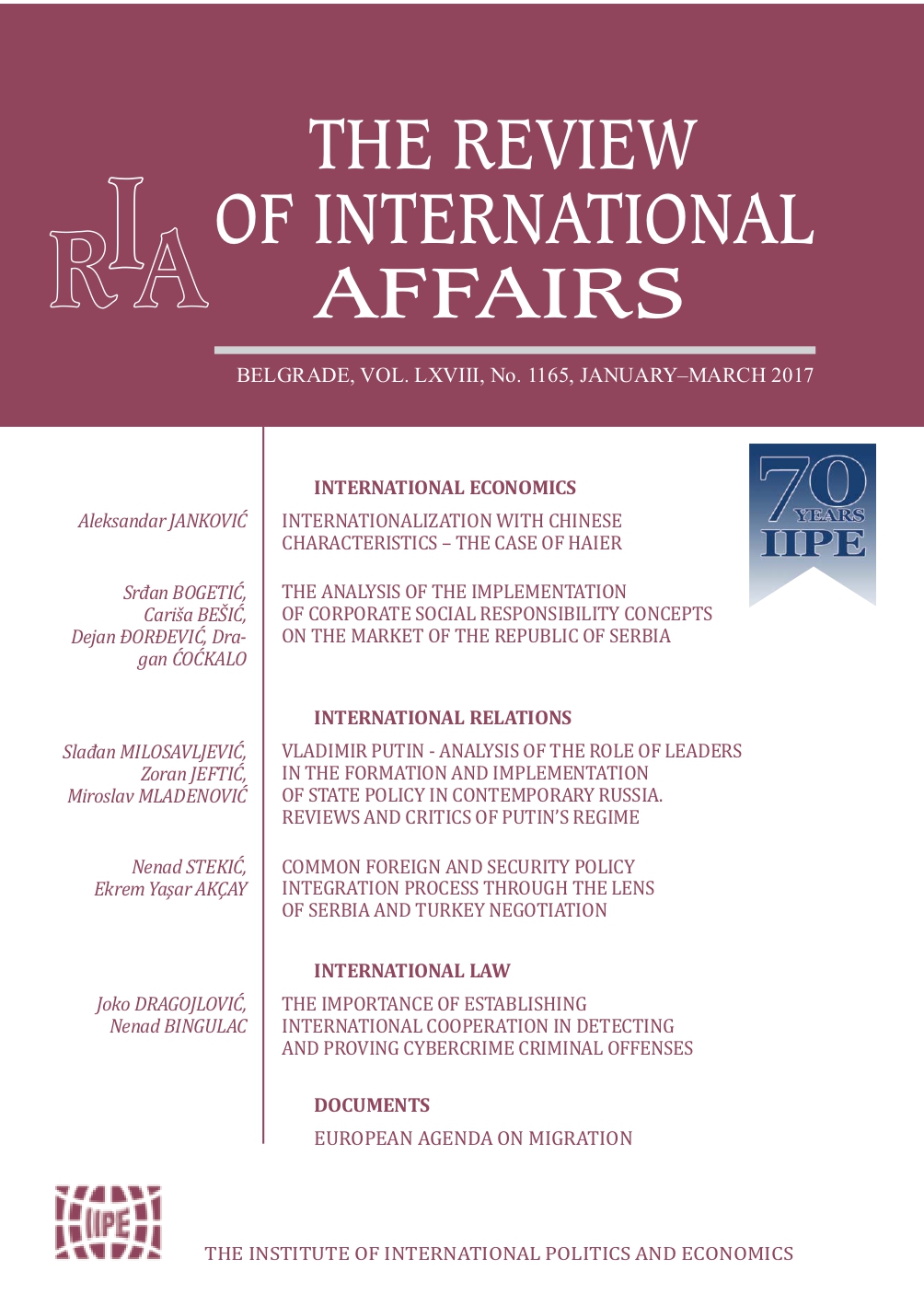Vladimir Putin and analysis of the role of leaders in the formation and implementation of state policy in contemporary Russia – reviews and critics of Putin’s regime
Vladimir Putin and analysis of the role of leaders in the formation and implementation of state policy in contemporary Russia – reviews and critics of Putin’s regime
Author(s): Slađan Milosavljević, Zoran S. Jeftić, Miroslav MladenovićSubject(s): Politics / Political Sciences
Published by: Институт за међународну политику и привреду
Keywords: the Russian Federation; Vladimir Putin; the political-security system
Summary/Abstract: After the collapse of the Soviet state, during the last decades of the 21st century, Russia found itself in the system crisis in cataclysmic measures that threatened to disintegrate this once powerful state. Political and economic power was significantly displaced outside the institutions of the system in the hands of oligarchs and regional governors, which threaten to disintegrate the federal system and problems in the economic, social, demographic, and military sphere shook the foundations of the Russian state. On the international stage, Russia’s influence was marginalized. All the elements of its hard and soft power were reduced. Russia has lost the attributes of a superpower and the leader of the former socialist camp was reduced to the level of a regional power. With the arrival of Vladimir Putin as the President of the RF in 2000 began a new phase in the development of post-Soviet Russia. Initiated extensive internal political, economic, and social reforms, as well as changes in foreign and security policy, resulted in a gradual recovery and consolidation of the Russian state and society. An essential feature of political life in Russia is the personalization of the power and the institution of the President of the RF, which largely depends on the personality of the president and his inner circle. This distinction is rooted in the political tradition and culture, and the imperial legacy. Some Western authors state that the tradition of the autocratic rule is in the heart of Russian political culture, while Russian authors believe that a strong central government, embodied in the institution of the head of state in modern Russia is a necessity in the initial phase of democratization and social transition. From the beginning, Putin has sought to pour “people from their inner circle” “into all levels of government and spheres that generate social and political power.” This profiled the structure of Putin’s regime, which is a very active process of permanent change of position, role, and importance of individual personalities, as well as their “migration” from one sphere of government to another. In the process, the overall fluctuations of high-ranking politicians, divided into clans and influential groups (the so-calledsiloviki, technocrats and liberals), Putin is the “headquarters” of the entire regime. Estimates of the regime of Russian President V. Putin, his personality, as well as a trail that is left in modern history, are more polarized and controversial than estimates of many other figures of Russia, and even global politics. However, the importance that Putin has for Russia and its position and role in the XXI century is undeniable, as well as his controversial planetary authority, or his global popularity. Putin is one of the most influential politicians in the world and the authors’ opinions of him are so divided, conflicting, contradictory and “ideologically colored” that any attempt of his generalization represents an endeavour foredoomed to failure. The amplitude of reactions is ranging from awe and glorification, to protest and scorn. It is undisputed that he is a charismatic, pragmatic, and capable statesman. It is also an indisputable fact that the implementation of his policy has the outright support of the Russian people. Critics of Putin’s regime as its main characteristic state the rigidity of the government, inflexibility, lack of transparency, bureaucratic domination of political and economic elites, instability in the sense of being based on the personality of the President and not on the balance of institutions.
Journal: The Review of International Affairs
- Issue Year: LXVIII/2017
- Issue No: 1165
- Page Range: 47-64
- Page Count: 16
- Language: English

